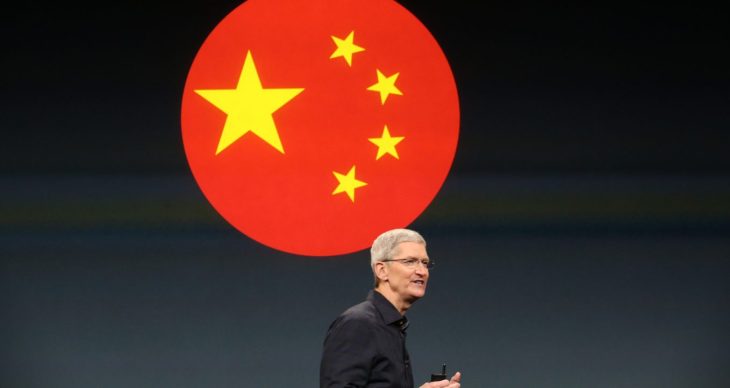For Chinese citizens, there’s now one less loophole in the country’s comprehensive censorship of Western media outlets. According to the The New York Times, on December 23, Apple removed the Chinese versions of the newspaper’s apps as well as their English counterparts in an act of compliance with the Chinese government.
In an explanation to the Times, Apple noted that the apps violated local regulations, though the company did not elaborate on specifics. Apple spokesperson Fred Sainz issued this statement to TechCrunch:
“For some time now the New York Times app has not been permitted to display content to most users in China and we have been informed that the app is in violation of local regulations. As a result, the app must be taken down off the China App Store. When this situation changes, the App Store will once again offer the New York Times app for download in China.”
https://twitter.com/ktbenner/status/816746962724777985
The New York Times has a history of censorship in China, a country known for its tight leash on media and online discourse. The Chinese government first blocked the newspaper’s online portals in 2012, though access to its mobile apps proved trickier to control. According to a 2013 report to the Center for International Media Assistance, China’s tactics for external censorship are a well-established pattern:
“When the Chinese government lacks direct control over the means of news dissemination or the technical capacity to block content, economic “carrots and sticks” have helped co-opt foreign companies into hindering Chinese audiences’ access to the outlets’ content.
For example, since September 2011, Apple has removed from its iPhone and iPad China store applications for iSun Affairs, NTDTV, and an overseas bookstore with works on Tibet, Xinjiang, and democracy. The only explanation, if any, that the app developers received from the tech giant was an unchallenged assertion that their content is “illegal” in China”
As with its regular web censorship, the Times appears eager to blame its own coverage for the crackdown. Though it’s hardly alone in reporting critically on the Chinese government, the newspaper did publish a critical look at a “a seven-and-a-half-minute phantasmagoria of the Communist Party’s nightmares of Western subversion” one day prior to when the apps were pulled.
Over the years, Apple has fielded many requests from the Chinese government, some even affecting its own apps. Last April, Chinese regulators forced iBooks and iTunes Movies out of the country, although that decision might have had its roots in China’s business and media distribution interests rather than its interest in controlling the flow of information.
